6 Reasons Why A Dell-VMware Spin-off Is Likely To Happen
CRN breaks down the six reasons why Dell Technologies could potentially spin off its 81 percent stake in VMware after reviewing recent SEC filings from both companies.
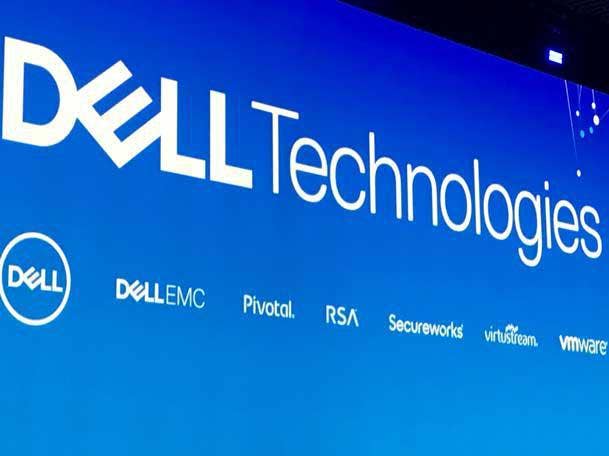
Why Dell Is Looking To Spin Off VMware
Dell Technologies unveiled to the world this week that it is in the early stages of exploring a spin-off of VMware, known to some as Dell’s crown jewel due to its massive virtualization market share, large presence in the corporate world and its roaring innovation engine both organically and via a slew of 13 acquisitions since 2019.
Round Rock, Texas-based Dell owns an 81 percent stake in VMware, which it acquired through its blockbuster acquisition of EMC in 2016. After weeks of speculation, both Dell and VMware unveiled this week that the two companies are reviewing the possibility of Dell selling its roughly $47 billion stake in VMware who has a market cap of nearly $58 billion as of Friday.
CRN took a deep dive into both Dell and VMware’s recent filings with the U.S. Securities and Exchange Commission regarding the matter as well as reviewed recent reports and analysts’ comments on the potential deal.
Here are six of the biggest reasons why Dell could likely spin off VMware.
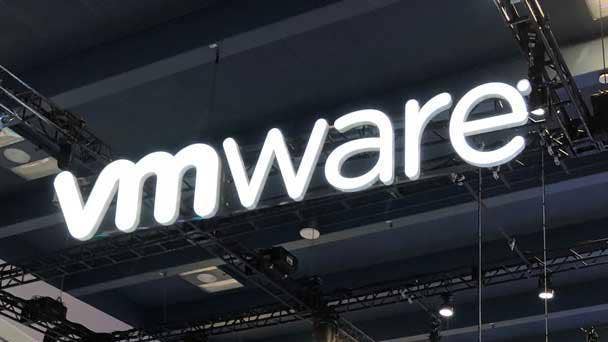
VMware Says Spin-off Is ‘Value-Enhancing’; Special Committee Already Formed
In filing with the U.S. Securities and Exchange Commission on July 15, VMware said the proposal will likely enhance the company’s market value.
“Although the process is only at an exploratory stage, VMware believes that a spin-off may be value-enhancing to VMware and its stockholders and could result in a simpler capital structure and a broader stockholder base, provide greater strategic flexibility and address certain governance arrangements, while still maintaining a mutually beneficial strategic and commercial partnership with Dell, which includes supporting our numerous joint customers,” said VMware in a 8-K filing with the SEC.
VMware has also been keen to get the ball rolling.
According to the filing, VMware has already formed a special committee of the board of directors to evaluate and engage in negotiations with Dell regarding all proposals being made by Dell in regard to the spin-off.
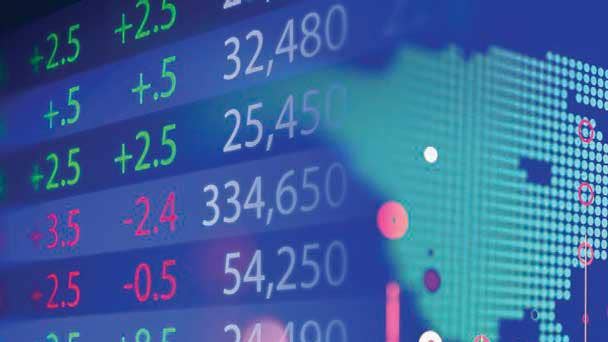
Would Boost Dell’s Investment Grade Rating
By spinning off its 81 percent stake in VMware, it would provide Dell with new cash to chase its goal of having investment-grade credit. Having a better investment grade rating would provide Dell more financial flexibility, lower debt service costs and likely attract new investors. In an SEC filing, Dell said spinning of VMware shares would boost its credit rating and help it achieve an investment grade rating quickly.
“Dell Technologies goal would be to (1) maintain VMware’s credit rating of investment grade and (2) improve Dell Technologies’ credit rating at, or shortly following consummation of, the spin-off,” said Dell in its filing.
The value of Dell’s stake in VMware is worth about $47 billion as of Friday morning, which is larger than Dell’s entire $43 billion market cap.
It is also key to note that before Dell confirmed its potential plan to spin off VMware this, which sent its stock soaring, its market cap was far less. In June, Dell’s total valuation was approximately $33 billion. Having its entire market cap worth less than its stake in VMware means that the market is giving Dell a negative value to its massive portfolio of servers, storage, PCs and other IT assets.
One reason why Dell hasn’t gained the investment grade it wants is due to its heavy debt stemming from its purchase of EMC which makes it less attractive to new investors. For example, Bank of America raised its price target for Dell from $60 per share to $70 per share following the news that Dell was looking at a VMware spin-off.

VMware Would Pay A Special Dividend; Dell Has $48B In Debt
If a spin-off is approved, VMware would pay a special dividend to shareholders like Dell as part of the divestment. Dell would seek to get the VMware board of directors to agree to pay the cash dividend to all of the company’s shareholders.
“Dell Technologies expects that in any such discussions, it would seek to negotiate the payment of a special cash dividend by VMware, which would be paid substantially concurrently with the Spin-off on a pro rata basis to all VMware stockholders. In the event VMware were to pay such a dividend, Dell Technologies expects that VMware would fund such dividend in part through the incurrence of new indebtedness,” said Dell Technologies in a recent filing with the U.S. SEC. “Dell Technologies expects that, in such event, it would use its pro rata portion of the proceeds from any such special cash dividend to repay outstanding debt of Dell Technologies and for general corporate purposes.”
The funding generated from the special dividend would enable Dell to help pay down its large debt stemming from its $67 billion acquisition of EMC in 2016, which included VMware.
Dell has approximately $48 billion in long-term debt, the company unveiled during its first fiscal quarter 2021 earnings report in May.

Silver Lake, Elliott Management In Favor Of Spin-off: Report
Two of Dell Technologies biggest and longest investors, Silver Lake Partners and Elliott Management, have already reportedly voice their support of the spin-off.
Private equity firm Silver Lake, which owned a nearly 29 percent stake in Dell as of January, and hedge fund Elliott Management are in favor of spinning off shares, which could be tax-free as well as shift Dell’s large debt elsewhere, potentially to VMware.
Silver Lake has been a key ally to both Dell Technologies and Dell founder and CEO Michael Dell for years. In a filing with the U.S. Securities and Exchange Commission earlier this year, the private equity firm disclosed it owns more than 101 million Class B shares of Dell Technologies, representing a 28.6 percent stake in Dell Technologies. Silver Lake also played a key role in helping to take Dell private in 2013.
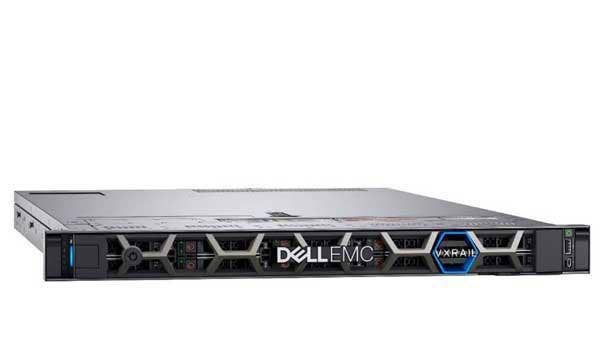
Dell VMware Technology Integrations Would ‘Remain Unchanged’
Dell and VMware have a unique and powerful technology partnership that sees both IT powerhouses tightly integrate their products to create market-leading products, such as VxRail for hyperconverged infrastructure, Unified Workspace for end-user computing and various solutions that combine Dell hardware with VMware software including the Dell Technologies Cloud. Leaders from both VMware and Dell say tight integrations are planned ahead in both companies roadmaps.
“The strategic relationship between Dell Technologies and VMware has never been stronger,” said Dell Technologies chairman and CEO Michael Dell, in a statement on the matter. ”Regardless of the options we are exploring to create additional value, we are accelerating our strategy - which remains unchanged. We are focused on winning in the consolidating markets where we operate and innovating across the Dell Technologies portfolio to create integrated solutions that turn data into insights and action.”
If VMware did become independent, Dell said it would expect to formalize agreements like the ones that now govern the relationship around go-to-market, services, research and development, and intellectual property. That would allow “ongoing strategic benefits and continued support for customers of both companies following any spin-off,” said Dell.
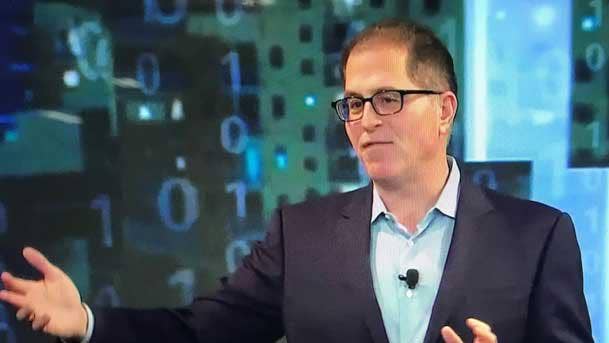
Michael Dell Has Successful History Making Huge Bets, Closing Complex Deals
If there’s one person in IT industry who’s been successful at making complex and market changing deals happen, it’s Michael Dell.
From transitioning the company he founded inside his college dorm room from a PC-only company to the world’s leading $91 billion IT infrastructure leader, Dell doesn’t shy away from pulling the trigger on major deals or disrupting short-term operations with the purpose of long-term success.
In 2013, Dell took his company private in a nearly $25 billion deal with help from Silver Lake. Then in 2016, he made the decision to make the largest IT acquisition in history by acquiring EMC and VMware in a blockbuster deal for $67 billion. In late 2018, through a unique and complex VMware stock swap deal, he managed to take his company public once again, debuting on the New York Stock Exchange at $46 per share under the ticker symbol DELL.
In terms of timeframe, Dell said it would not spin off its shares of VMware before September 2021 due to tax reasons. Dell is seeking to get the deal to qualify as tax-free for federal income tax purposes. This means it will be at least another 13 months before any deal is finalized, giving Michael Dell plenty of time to work out any issues or hurdles that arise.